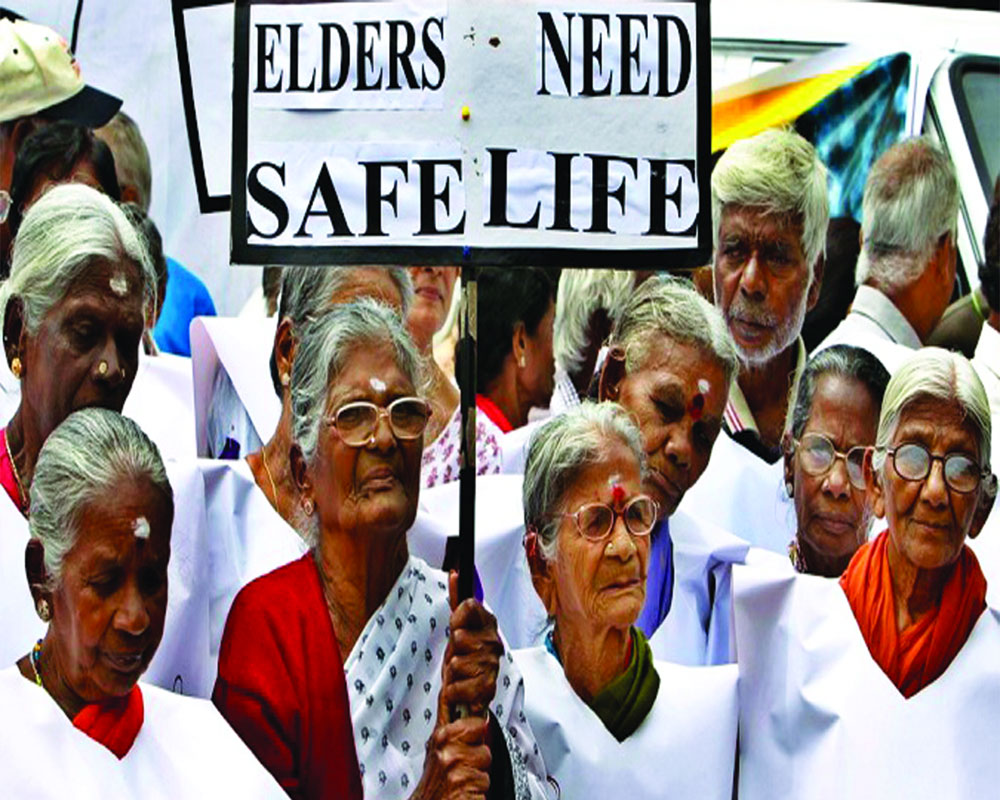In India, the number of seniors will be over 150 m by 2025 and a majority will be women living alone
Globally, the number of people above 60 years of age is the fastest-growing segment and comprises almost 11 per cent of the population. According to the World Health Organisation, as of 2020, the number of people above 60 outnumbered children younger than five years of age. Significantly, 80 per cent of the ageing population will be in lower and middle income countries. In India, the number of seniors will be more than 150 million by 2025 and a significant percentage will be older women living alone with comorbidities. Many elderly will have no provision for care to meet these challenges. So how prepared are we to face this ageing tsunami? In the developed world senior care service offerings, both public and private, are at a mature stage and insurances help cover a part of the care expenses. These service offerings include home-care agencies, institutional care homes, rehabilitation care, day care, assisted and independent senior living communities. In India, longevity has increased due to better healthcare facilities, however, social infrastructure and support services have not kept pace with this changing demographic. Urbanisation has led to a disintegration of the joint family system and more elderly are living alone or prefer to live independently. According to a study conducted by the UNFPA, India Ageing Report, 2017, there will be an increase in demand for services for activities of daily living as well as instrumental activities of daily living. According to a 2018 CII report, the senior care market is around Rs 6,000 crore. These opportunities exist across healthcare needs, lifestyle products, clinical and residential services and non-clinical support services.
Due to COVID-19, there is an increased demand for residential facilities as well as home-care services and firms are seizing this opportunity. The home-care services focus on healthy ageing, quality of life, care management, on demand care and long-term care for degenerative diseases like Alzheimers, Parkinsons and so on. Many tech startups are focusing on remote monitoring devices for fall prevention, safety, security and digital health monitoring. Robotic solutions for caregiving and beating social isolation and loneliness are prevalent in countries like Japan, which has the highest ageing population. There are AI and virtual reality solutions on the horizon to provide for care and help monitor elderly with dementia, send reminders for medication and other routine chores. Wearable devices with GPS tracking help monitor movement of the elderly with decreased mobility and cognition.
Digital literacy among the elderly has gone up due to the pandemic and there is an increased willingness to explore online services and products. Many service offerings focus on second careers, reskilling, matrimonial and recreational offerings like online classes for dance, music and yoga. However, there are many challenges in the senior care sector in India with few resources available for geriatric care, including doctors and other geriatric specialists; lack of early detection mechanisms for ailments requiring long-term care; inadequate public infrastructure and policy support and the GST rates on elder care services.
Technology will play a key role in helping this sector fill the gap for resources as well as tech-enabled solutions to help improve the quality of life. Many startups offer solutions to help family caregivers to enable and empower them to provide long-term care while biomarker sensor devices can help predict risks of certain chronic ailments. On the policy front, the Government can help boost the sector by creating awareness about geriatric care issues. Develop sensitisation programmes for old age issues, including both physical and mental health, and social well-being needs of the elderly. Public-private partnerships can help boost the sector as the challenge is huge and needs a multi-pronged approach to address the gap in services.
(The writer is founder and managing director, Samvedna Senior Care)


























